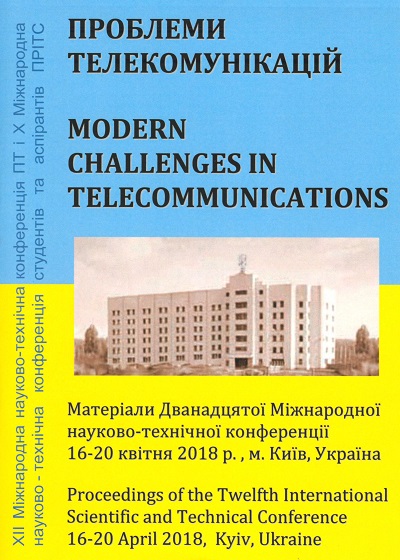СРАВНИТЕЛЬНЫЙ АНАЛИЗ МЕТОДОВ КРАТКОСРОЧНОГО ПРОГНОЗИРОВАНИЯ СЕТЕВОГО ТРАФИКА
Анотація
Short-term Forecasting: Methods to Predict Network Traffic
We analyzed the ability of simple linear forecasting methods to predict short-term real network traffic behavior. To evaluate such ability we experimentally estimate forecasting accuracy of some basic methods operating time series based on a real network traffic.
Посилання
Awduche D. et al. Overview and principles of Internet traffic engeeniring. RFC 3272, may, 2002.
Shu Y. et al. Traffic prediction using FARIMA models In: Communications, 1999. ICC’99. 1999 IEEE International Conference on. IEEE, 1999. pp. 891-895.
Rutka G. Network Traffic Prediction using ARIMA and Neural Networks Models In: Electronics and Electrical Engineeging. 2008. pp. 47-52.
Koopman S. J., Shephard N. State space and unobserved component models. Cambridge University Press, 2004.
Makhoul J. Linear prediction: A tutorial review In: Proceedings of the IEEE. 1975. pp. 561-580.
Kendall, M. G., Stuart A.: The advanced theory of statistics. Vols. II and III. (1961).
##submission.downloads##
Як цитувати
Номер
Розділ
Ліцензія
Авторське право (c) 2018 Дмитрий Борисович Запорожец, Мария Анатольевна Скулиш

Ця робота ліцензується відповідно до Creative Commons Attribution 4.0 International License.
Authors who submit to this conference agree to the following terms:a) Authors retain copyright over their work, while allowing the conference to place this unpublished work under a Creative Commons Attribution License, which allows others to freely access, use, and share the work, with an acknowledgement of the work's authorship and its initial presentation at this conference.
b) Authors are able to waive the terms of the CC license and enter into separate, additional contractual arrangements for the non-exclusive distribution and subsequent publication of this work (e.g., publish a revised version in a journal, post it to an institutional repository or publish it in a book), with an acknowledgement of its initial presentation at this conference.
c) In addition, authors are encouraged to post and share their work online (e.g., in institutional repositories or on their website) at any point before and after the conference.

